HR Essentials
Course Overview

Human Resources is becoming one of the strongest business partners and strategy builder across organizations. It’s all about people after all and specialized HR training courses can facilitate achieving optimal outcomes in this regard! Whereas recruitment is a progressive process, involves human resource training specialists. Although the human resources managers in an organization make the final hiring decision, their choice is based heavily on the opinions and scores provided by recruitment specialists in addition to understanding his own role within the organizational boundaries. With this in mind, HR professionals need to understand the purpose, goals and benefits of effective recruitment to avoid hiring the wrong people and wasting company revenue.
The most basic purpose of recruitment is to add new staff to the organization or internally recruit employees for new and better positions. When employees leave due to dismissal, voluntary separation, retirement or temporary absence, recruiters need to fill these positions as quickly as possible, either internally or externally. The same applies if the company expands, again requiring new, qualified staff to join the team.
Goal of Course:
This hands on 5 days HR training courses is a practical in nature that will reveal for the delegates the secrets to becoming Professional HR specialist and will equip them with all the basic and up-to-date tools in order to understand the depth of the job and perform their tasks effectively.
This program provides invaluable information that delegates will be able to utilize over and over again. It is important to keep the training material with the delegates post the HR training courses for future use and referral. Delegates can refer to the material for self-evaluation.
Duration:
5 days
Language:
English
Training Objectives
- Human resources and its main roles including HR Cycles
- Strategic HR Management
- Measuring & valuing human resources
- Developing skills of the HR interviewer
- To understand the techniques and skills required to effectively interview candidates and explains the Job Offer structure
- Developing Job descriptions with SMART objectives
- Identify the talents required to perform the potential vacancies
- Interviewing structure
- Employee retention & motivation
- Retention and motivation strategies
- Coaching Skills
- Giving Feedback Effectively
Module Outlines
Module 1: Human Resources and its Pillars
- Introduction
- HR and its new challenging roles
- HRD & HRO
- The HR Competency Module
- Competencies Frame Work
- HR as Strategic Business Partner
- HR & ROI
Module 2: Human Resources & Development
- Building the Competency
- Training & Development Cycle
- Performance Management Cycle
- Compensation and Benefit Cycle
- KPI’s & KPO’s
- Sitting SMART Objectives
- Staff Retention and Strategies
Module 3: Strategic HR Management
- Strategy
- Building Competitive HR strategy
- Requirements of building strategic HR functions
- Strategic HR challenges as Business Partners and Change Agent
- Core Values Vs. Core Competencies
Module 4: HR Assessment Tools
- Assessments and evaluation process and mechanism
- Analyze attritions and turnover rates (who & why)
- Psychometric testing and analysis
- IQ testing & analysis
- Emotional intelligence testing and analysis
- Cognitive ability testing and analysis
- Creating a consistent recruitment structure
- Best practices in performance management
Module 5: Employee Retention & Motivation
- Analysis of Attrition & Turnover Rates
- What keeps the employees and what makes them leave
- Employee Morale and Employee satisfaction Indices
- Retention and Motivation Strategies
Module 6: Performance Management
- Tangible Vs. Intangible Appraisal Systems
- Best and Practical Performance Evaluation Systems
- Performance Related Pay
- Competency-based appraisals
Module 7: Coaching
- HR & coaching
- The principles, values and beliefs of a good coach
- Becoming a coach-Key questions and considerations
- How to plan a coaching assignments
- The barrier to a good coaching conversation
Customized Learning
Leap To Success is offering a variety of learning options to meet current realities and can be adapted to suit your business needs. These options include variants of online, blended and on-site course formats.
Face To Face Learning
Enabling you to have a face to face interactive and engaging learning experiences led by renowned industry experts and thought leaders with extensive practical experience who will employ a variety of interactive learning techniques, including short high-impact videos, case studies, assessments, role plays ,in addition to on-going support.
Virtual Learning Labs
Interactive online learning held in real-time using Zoom and are led by international subject matter experts who incorporate case studies, breakout rooms, guided practice, simulations and discussions to maximise your learning experience.
General Methodology
Similar to any L2S training program, this program offers an interactive learning experience in which will allow the delegates to reflect on their learning through an informative, indulging, and fun classroom experience. The design of the training session focuses on the following attributes.
Concrete Experience: The delegates will learn by doing
Reflective Observation: Reflecting on the newly experienced skill-set
Abstract Conceptualization: Developing deeper understanding to the learned concepts
Active Experimentation: Providing the delegates with realistic tools that can be tested in the real life
Specific Methodology
To effectively execute this program and to ensure that the end result is being achieved L2S specific training methodology in this HR Essentials program explained in the below stages:
Stage 1: Designing the Training Event
During this stage L2S will be assessing the learning needs from the determined objectives. Simultaneously consider practicality. In addition L2S will consider the group’s learning style in order to identify which style of learning is most suitable. During this stage L2S as well will capture a real problematic incidents reflecting on the real work environment.
Stage 2: During the training
The course design is based on interactive facilitation, training games, training videos, role-plays, group discussions, group brainstorming sessions. The Delegates will start the training program by delivering their pre assignment.
Activities Brief
Games & Activities Conducted During the Training
The Appraisal Game
Delegates can practise their appraisal skills in a risk-free environment. The Appraisal Game defines ‘appraisal’, challenges assumptions, establishes basic principles and practices, and puts them to the test. Great introduction.
Benefit:
- The true definition of appraisal
- To identify the problems people have with appraisal
- The real benefits of appraisal
- To understand how an appraisal process should work
- The importance of preparation – for both parties
- How to conduct an appraisal interview
- The concept of “critical incidents
The Assessment
Great value pack! Assess staff competencies in four key areas – time management, teamwork, leadership and decision-making – and plan strategies for better performance.
Learning Objectives:
- A range of key competencies in four separate skills areas
- To look objectively at their own competence levels
- To identify their strengths and weaknesses
- To continually assess their own contribution back at work
Roadblock
The Roadblocks Toolkit is designed for the manager and uses the basic Square Wheels facilitation ideas as groundwork for generating group problem solving as well as peer pressure for Performance Improvement.
It uses the simple concept that no one can “empower” another and that many people in the workplace choose to be un-empowered and let things get in the way of personal or group performance. The purpose of this toolkit is to help a work group focus on what we call Dis-Un-Empowerment, or the removal of the things that get in the way of moving forward. Roadblock removal, especially done in a peer-supported context, is both engaging and optimizing.
Sign Up For the Course
